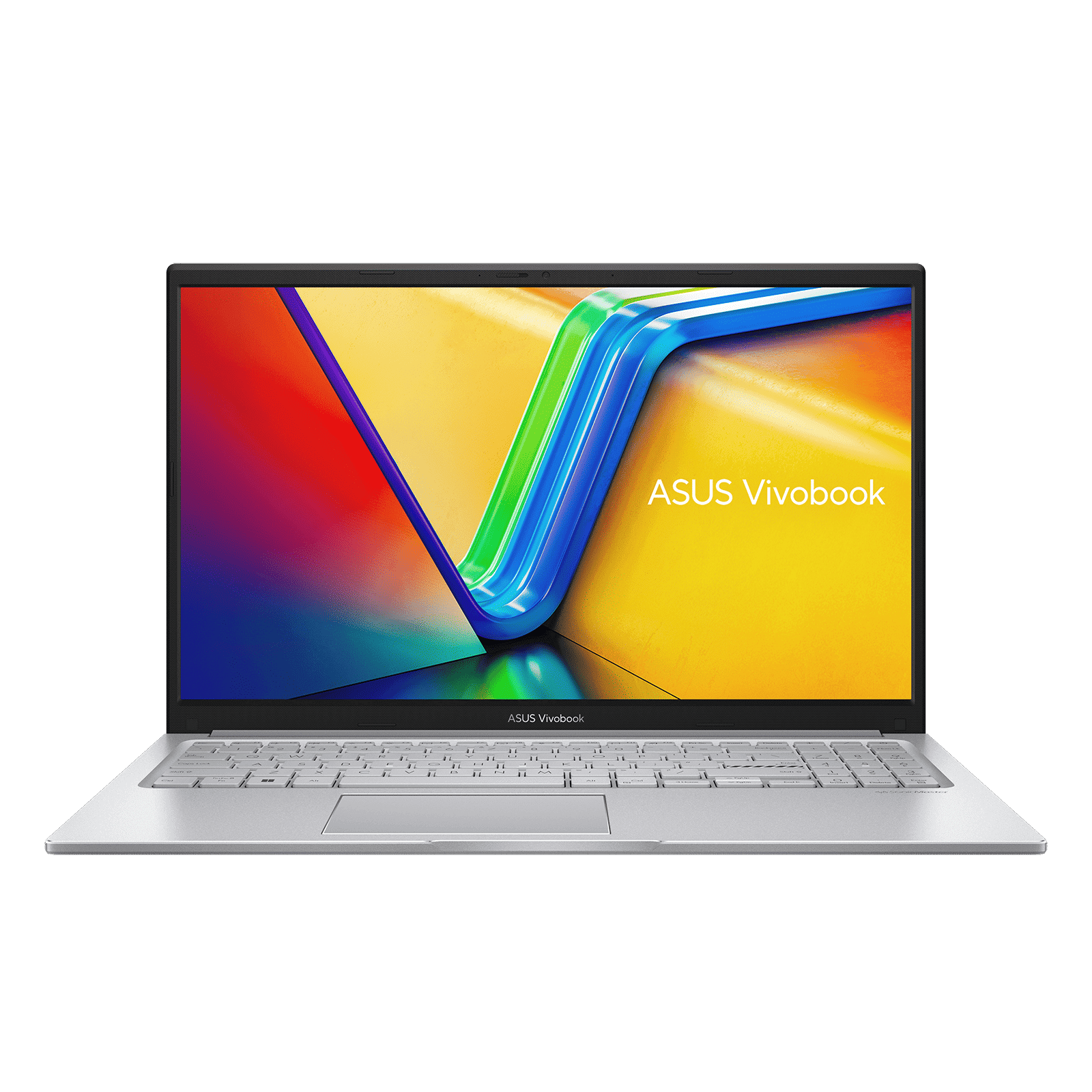
Consumer Electronics
•05 min read

Buy ASUS Vivobook 15 X1504VA-NJ320WS Intel Core i3 13th Gen Thin & Light Laptop (8GB, 512GB SSD, Windows 11 Home, 15.6 inch Full HD Display, MS Office Home & Student 2021, Cool Silver, 1.7 KG) online at best prices from Croma. Check product details, reviews & more. Shop now!
Picture this: you’re on the lookout for a lightweight, budget-friendly laptop, yet the market seems flooded with choices that leave you wondering which one to pick. In today’s evolving world of lightweight laptops, netbooks and Chromebooks often lead the discussion. Each device has its distinct features, benefits and ideal use cases, and by reading on, you will gain a clear understanding of the difference between netbook and chromebook, along with their advantages and limitations, enabling you to make an informed decision for your unique needs.
Netbooks emerged as compact and budget-friendly devices, designed primarily for basic offline tasks such as word processing and spreadsheets. Their simplicity and affordability made them a popular choice in the early days of portable computing, especially for users with limited demands. Despite their decline in mainstream popularity, netbooks continue to serve a niche market for those who need a straightforward, versatile device that runs on operating systems like Windows or Linux and does not require constant internet connectivity.
Chromebooks, on the other hand, are modern devices running on Chrome OS. They are built around cloud-based functionality, providing seamless integration with Google Workspace and an extensive range of online applications. With a focus on agility and simplicity, Chromebooks are particularly popular among students, young professionals and remote workers who rely on consistent connectivity and the advantages of regular security updates and automatic maintenance.
Did You Know? Netbooks and Chromebooks Serve Different Purposes
Netbooks were designed for basic offline tasks like word processing, while Chromebooks thrive in a connected world, leveraging cloud-based tools and apps for seamless productivity.
When comparing netbooks and Chromebooks, the operating systems stand out. Netbooks often run on Windows or Linux, offering flexibility and a range of offline capabilities. Chromebooks, however, are built on Chrome OS, a system optimised for cloud-based operations that ensure smooth performance as long as you have internet connectivity.
Processing power is another key difference. Typically, netbooks use older and less powerful processors, meaning they excel in simple tasks but may struggle with multitasking. Chromebooks frequently feature up-to-date hardware that prioritises efficiency and speedy performance, aligning with their focus on online use. While netbooks tend to offer more local storage, Chromebooks rely on cloud storage and deliver regular software updates and security features.
Both netbooks and Chromebooks are valued for their portability. However, the physical design varies noticeably. Netbooks are generally designed for basic use with a focus on low cost, whereas Chromebooks are crafted with durability and sleek design in mind. This modern approach makes Chromebooks the preferred choice for those needing a robust device for travel and active lifestyles.

Buy ASUS Vivobook 16 X1605VA-MB1627WS Intel Core i5 13th Gen Thin & Light Laptop (16GB, 512GB SSD, Windows 11 Home, 16 inch WUXGA IPS Display, MS Office 2024, Cool Silver, 1.88 KG) online at best prices from Croma. Check product details, reviews & more. Shop now!
When considering price, netbooks have historically been more affordable, targeted at users with basic computing needs. Chromebooks, while still budget-friendly, offer a higher value proposition through their regular updates, enhanced security features and integration with online applications, making them a worthy investment for long-term usability.
Netbooks have their distinct benefits. They ensure offline functionality, making them reliable for users who do not always have internet access. Their affordability makes them an attractive option for those on a tight budget, and their versatility in operating systems means users have choices that suit their specific requirements. However, these devices often come with outdated hardware, struggle with multitasking and are known for poorer battery life when compared to more modern alternatives.
Chromebooks bring a range of modern conveniences to the table. Their lightweight and portable design is ideal for everyday use, and the seamless integration with Google Workspace helps boost productivity. Users appreciate the long battery life and the assurance of regular updates, which keep the device secure and efficient. Although they are designed for a connected world, their reliance on online connectivity can limit some offline functions, which is a minor trade-off for many users.
If you primarily work on basic offline tasks like word processing or spreadsheets, a netbook may serve your needs well. These devices are particularly suited to those who are on a budget, perhaps needing a secondary device for travel or for specific offline tasks. Netbooks can be a practical solution for travelling professionals who require a low-cost, portable device without the reliance on constant internet access.
Chromebooks are best suited for students and professionals who embrace cloud-based tools and applications. They provide a secure, low-maintenance environment for web browsing, streaming and collaboration through integrated platforms like Google Workspace. For remote workers who prioritise efficiency and connectivity, Chromebooks offer a modern and reliable solution. With the added benefit of NeuCoin rewards available on Tata Neu, every successfully timed purchase could also enhance your savings across various brands.
While traditional laptops offer a broader range of functionalities, Chromebooks stand out due to their simplicity and excellent value for online operations. For users who primarily require lightweight, web-based access and quick performance, Chromebooks present a strong alternative, particularly for those mindful of budget without compromising on modern features.

Buy Microsoft Surface 7th Edition Snapdragon X Elite Touchscreen Ultra Thin Laptop (16GB, 1TB SSD, Windows 11 Home, 15 inch LCD Display, Black, 1.66 KG) online at best prices from Croma. Check product details, reviews & more. Shop now!
Traditional laptops provide more power, better multitasking and a broader range of features compared to netbooks. Although netbooks still have niche applications, their outdated hardware and limited capabilities often mean they fall short for users seeking long-term solutions. The progression towards more robust devices like Chromebooks and ultrabooks highlights the evolving demands of today’s market.
For those who wish to venture beyond Chromebooks, lightweight laptops such as ultrabooks or budget-friendly Windows devices offer competitive performance. These alternatives are designed to meet the needs of tech enthusiasts and families alike, combining portability with robust performance. Each option comes with its own set of advantages, so understanding your own usage pattern is key to making a well-informed decision.
Netbooks are older, lightweight laptops designed for basic offline tasks, while Chromebooks are modern devices optimised for cloud-based applications and online productivity.
It depends on your needs. Chromebooks excel in online tasks and long-term usability, while netbooks are well-suited for basic offline tasks and offer a budget-friendly option.
Netbooks are no longer widely produced, but they remain available in niche markets or as refurbished options for users with specific offline requirements.
They often come with outdated hardware, struggle with multitasking and have a shorter battery life compared to modern lightweight laptops.
For many users, yes. Chromebooks are excellent for web-based and productivity tasks, making them an ideal choice for those who prioritise regular updates and low-maintenance performance, though they might not be suitable for gaming or heavy software applications.
The choice between a netbook and a Chromebook ultimately depends on your specific needs and lifestyle. Netbooks offer the advantage of offline functionality and affordability, making them a logical option for simple tasks. In contrast, Chromebooks provide modern features, a secure cloud-based experience and the appeal of ongoing updates, which make them a strong contender for productivity and reliability. With platforms like Tata Neu enhancing the shopping experience through NeuCoin rewards and expert guidance, you can be confident in making a smart investment for the future. Embrace the changing landscape of lightweight laptops and discover the solution that best aligns with your daily requirements and aspirations.